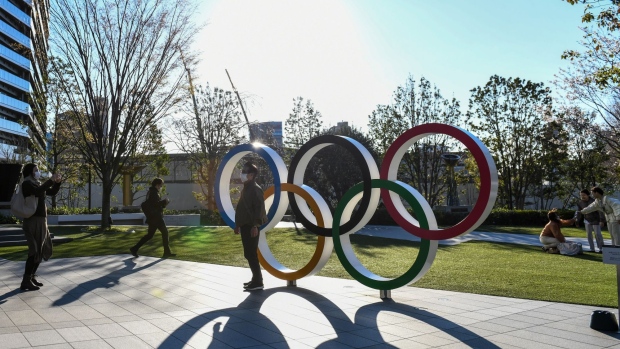Mar 30, 2020
Tokyo Olympics have been rescheduled for July 2021
, Bloomberg News

The opening of the Tokyo Olympics has been rescheduled to July 2021 after the games originally set for this year were postponed because of the coronavirus pandemic.
Yoshiro Mori, president of the Tokyo 2020 organizing committee, told reporters Monday that he had agreed with Thomas Bach, head of the International Olympic Committee, to hold the games from July 23 to Aug. 8 of next year.
Japanese Prime Minister Shinzo Abe and Bach earlier this month decided to delay the games that were set to begin this July, as the pandemic made it impossible for aspiring Olympians to train and, in many cases, qualify before July.
The Lausanne-based IOC has never delayed the Olympics by a year or more, though previous games have been cancelled, such as the 1940 and 1944 Olympics during World War II.
Local media, including broadcaster TBS and NHK, reported on the new starting date earlier Monday.
Toshiro Muto, Chief Executive Officer of Tokyo 2020, said earlier the committee will calculate the additional cost of the games once the new opening date is fixed, but that the expense will likely be massive because of the combined fees for cancellation and new rentals.
Japan has spent more than $26 billion to ready Tokyo for the games, according to some estimates. With about 600,000 foreign visitors and more than 11,000 athletes expected to attend, the event was supposed to reinvigorate the economy, which shrank by an annualized 7.1% in the three months through December.
A one-year delay could trigger about 641 billion yen ($5.8 billion) in economic losses, according to an estimate by Katsuhiro Miyamoto, an honorary professor at Japan’s Kansai University.
Postponement is already causing headaches for the corporate sponsors of the games, which are reworking their plans for the world’s biggest marketing event. In total, Japanese businesses paid more than $3.3 billion to sponsor the games, triple the previous record for an Olympics.
The Tokyo Olympic organizers have asked the games’ sponsors -- which include General Electric Co. and Procter & Gamble Co. -- to extend their assistance into 2021 amid the disruption.
Last week Bach said all the sponsors of the Tokyo 2020 Olympics will retain their sponsorship rights despite the postponement of the games.
Most affected from the delay are the 66 local Japanese sponsors. While most global Olympic partners are locked into long-term deals that span many Olympic cycles, the Tokyo organizers leaned on national pride to score an unprecedented level of support from domestic brands such as Asahi beer and Asics sneakers.
Toyota, Nomura
Toyota Motor Corp. paid 200 billion yen for a 10-year top-tier Olympics sponsorship, according to Japanese media, and is pouring an enormous amount of money and effort on top of that to boost its presence at the games. The Japanese automaker rolled out a new taxi model to replace Tokyo’s aging fleet ahead of the Olympics, and had planned to deploy everything from electric vehicles to fuel-cell-driven buses to ferry people around.
Brokerage Nomura Holdings, one of the 66 Japanese partners, sought to get its name in front of existing and potential clients across the country in order to differentiate itself from competitors and motivate employees, according to spokesman Kenji Yamashita.
--With assistance from Bryce Baschuk.